Filter by
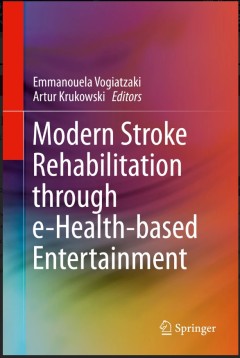
Modern Stroke Rehabilitation through e-Health-based Entertainment
Describes innovative approaches for achieving mixed-reality environments, combining augmented and virtual environments with full-body immersive user interfaces; Offers cost-effective means of body motion capture by hybridizing wearable sensor data; Utilizes energy-efficient micro-embedded sensors for wearable sensing applications; Includes innovative, power autonomous sensing using Bod…
- Edition
- 1
- ISBN/ISSN
- 978-3-319-21293-7
- Collation
- IX
- Series Title
- -
- Call Number
- -
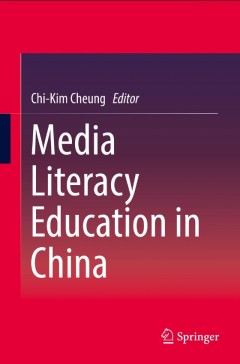
Media Literacy Education in China
Dr. C.K. Cheung teaches at the Faculty of Education, University of Hong Kong. He has published more than 30 externally refereed articles and book chapters in the field of media literacy education. He has been successful in getting both internal and external research grants. In 2006, he was awarded the most competitive research grant (CERG) to look at the implementation of media education in Hon…
- Edition
- 1
- ISBN/ISSN
- 978-981-10-0043-0
- Collation
- XII, 179
- Series Title
- -
- Call Number
- -
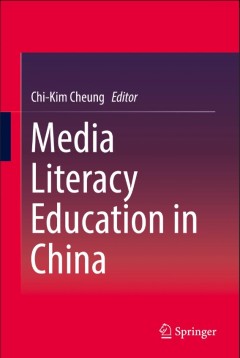
Media Literacy Education in China
Dr. C.K. Cheung teaches at the Faculty of Education, University of Hong Kong. He has published more than 30 externally refereed articles and book chapters in the field of media literacy education. He has been successful in getting both internal and external research grants. In 2006, he was awarded the most competitive research grant (CERG) to look at the implementation of media education in Hon…
- Edition
- 1
- ISBN/ISSN
- 978-981-10-0043-0
- Collation
- -
- Series Title
- -
- Call Number
- XII, 179
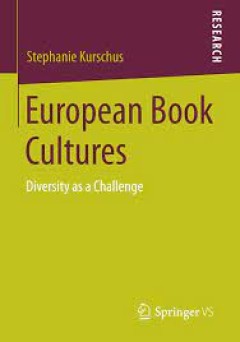
European Book Cultures Diversity as a Challenge
Stephanie Kurschus analyses the idea of a common "European" book culture that integrates the book market as an essential aspect and employs book promotion as balancing instrument. Characteristics of book culture are identified; the resultant concept of book culture provides an overview of the values and myths ascribed to the book. Furthermore, applied book promotion measures are analyzed for th…
- Edition
- -
- ISBN/ISSN
- 978-3-658-08060-0
- Collation
- 20 b/w illustrations
- Series Title
- -
- Call Number
- -
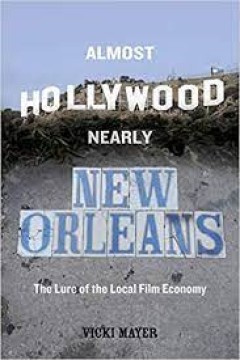
Almost Hollywood, Nearly New Orleans : The Lure of the Local Film Economy
Early in the twenty-first century, Louisiana, one of the poorest states in the United States, redirected millions in tax dollars from the public coffers in an effort to become the top location site globally for the production of Hollywood films and television series. Why would lawmakers support such a policy? Why would citizens accept the policy’s uncomfortable effects on their economy and cu…
- Edition
- -
- ISBN/ISSN
- 9780520967175
- Collation
- -
- Series Title
- -
- Call Number
- 791.43 MAY a
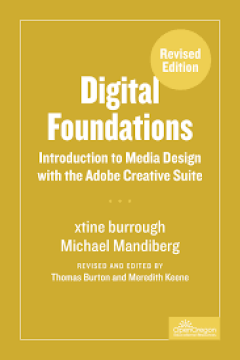
Digital Foundations : Introduction to Media Design with the Adobe Creative Cloud
Digital Foundations uses formal exercises of the Bauhaus to teach the Adobe Creative Suite. All students of digital design and production—whether learning in a classroom or on their own—need to understand the basic principles of design in order to implement them using current software. Far too often design is left out of books that teach software for the trade and academic markets. Conseque…
- Edition
- Revised Edition
- ISBN/ISSN
- -
- Collation
- -
- Series Title
- -
- Call Number
- 302.23 BUR d
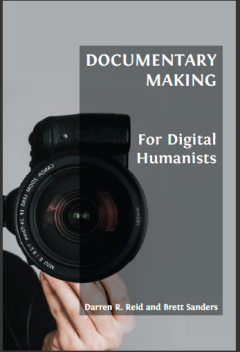
Documentary Making for Digital Humanists
This fluent and comprehensive field guide responds to increased interest, across the humanities, in the ways in which digital technologies can disrupt and open up new research and pedagogical avenues. It is designed to help scholars and students engage with their subjects using an audio-visual grammar, and to allow readers to efficiently gain the technical and theoretical skills necessary to cr…
- Edition
- -
- ISBN/ISSN
- 9781800641976
- Collation
- -
- Series Title
- -
- Call Number
- 070 REI d
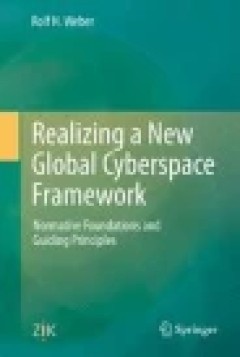
Realizing a New Global Cyberspace Framework: Normative Foundations and Guidin…
In many respects cyberspace has created a new world. The online phenomena encompass social, cultural, economic, and legal facets. Exceeding the present Internet Governance concept the book analyses the normative foundations and guiding principles of a global cyberspace regime that includes the exchange of people, businesses, governments, and other entities. Based on this assessment and philosop…
- Edition
- -
- ISBN/ISSN
- 978-3-662-44677-5
- Collation
- -
- Series Title
- -
- Call Number
- 343.099
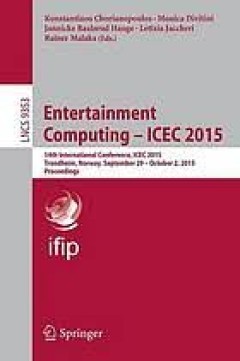
Entertainment Computing - ICEC 2015 14th International Conference, ICEC 2015…
This book constitutes the refereed proceedings of the 14th International Conference on Entertainment Computing, ICEC 2015, held in Trondheim, Norway, in September/October 2015. The 26 full papers, 6 short papers, 16 posters, 6 demos and 6 workshops/tutorial descriptions presented were carefully reviewed and selected from 106 submissions. The multidisciplinary nature of Entertainment Computin…
- Edition
- -
- ISBN/ISSN
- 978-3-319-24589-8
- Collation
- 168 illustrations in colour
- Series Title
- -
- Call Number
- -
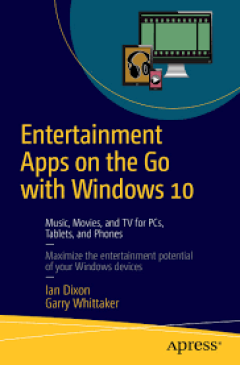
Entertainment Apps on the Go with Windows 10 Music, Movies, and TV for PCs, …
This book enables you to unleash the entertainment potential of your Windows 10 PC, tablet, or phone—or any combination of the three! Learn how to stream movies and TV shows, manage your media collection, purchase new media, and upload your music collection to the cloud. Ian Dixon and Garry Whittaker take the hassle out of managing and enjoying music, TV, and movies from your own collectio…
- Edition
- -
- ISBN/ISSN
- 978-1-4842-1473-2
- Collation
- 110 b/w illustrations
- Series Title
- -
- Call Number
- -
 Computer Science, Information & General Works
Computer Science, Information & General Works  Philosophy & Psychology
Philosophy & Psychology  Religion
Religion  Social Sciences
Social Sciences  Language
Language  Pure Science
Pure Science  Applied Sciences
Applied Sciences  Art & Recreation
Art & Recreation  Literature
Literature  History & Geography
History & Geography